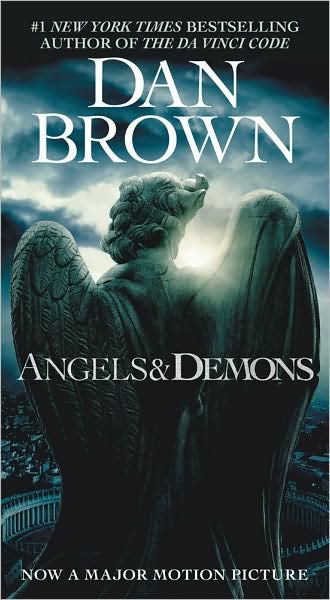 I was in college in 2005, studying archaeology and talking to creationists in my free time. The Passion of the Christ had come out the previous year, and I was smart enough to sound like I knew something about the world, but not smart enough to just leave well enough alone. I spent a lot of time talking about religion, and science, and art, and history, and literature. Politics would come later – but I was a college student, and it was the point in the Bush administration where liberal Republicans (which I thought of myself as, at the time) were starting to turn on the administration (if they hadn’t already).
I was in college in 2005, studying archaeology and talking to creationists in my free time. The Passion of the Christ had come out the previous year, and I was smart enough to sound like I knew something about the world, but not smart enough to just leave well enough alone. I spent a lot of time talking about religion, and science, and art, and history, and literature. Politics would come later – but I was a college student, and it was the point in the Bush administration where liberal Republicans (which I thought of myself as, at the time) were starting to turn on the administration (if they hadn’t already).
The Da Vinci Code came out in 2003, but I don’t think it really came onto my radar until 2004. I had absolutely no interest in reading it.
Years later, Twilight was making waves across the literary world. I had a very similar reaction to Twilight as I had towards The Da Vinci Code back in 2004/05: disapproval and revulsion. Nearly six years ago, I gave Twilight a shot. And then, after watching Lindsey Ellis’s brilliant video about the Twilight franchise, I was embarrassed by the review I’d written. Why hadn’t I reviewed the book like Ellis had?!
(Because she’s more insightful and fair than I am.)
So. Here I am. In my mind, Twilight was The Da Vinci Code for teenage girls. There’s nothing wrong with teenage girls liking things (which I hope is obvious). But there’s also no reason why I should also like those things. Similarly, The Da Vinci Code isn’t for me. In the same way Tom Clancy isn’t for me, or Michael Crichton, or any number of other things.
But, I’ve been obsessed with the podcast Knowledge Fight over the last few months, so I’ve been enmeshed in a world of idiocy and conspiracy theory. So even though I fully expected to not like Angels & Demons, I did have a sick interest in reading it.
All of this is just a really long-winded way of saying I came into this book with a lot of baggage. Dan Brown had a lot working against him, and I wasn’t going to give him very much to work with.
This book is drinking peanut butter with a straw stupid. It’s playing a game of Operation while riding a roller coaster stupid. It’s cutting the grass with toenail clippers stupid.
This book is 600 pages of the ILLUMINATI controlling everything and committing multiple murders with 10 pages at the end largely consisting of, “just kidding! It’s really this guy who killed the Pope (his father figure and actual father, because PLOT TWIST) for reasons that can best be summarized as, ‘unbelievably stupid.'” The entire plot of the book is a ruse to throw you off the scent of who the actual villain is, except it’s pretty clear throughout the novel that the actual bad guy is a bad guy – even though he isn’t revealed to be a bad guy until the very end.
Setting all of that aside, there’s a lot of weird sci-fi in this book that was wholly unexpected. Like, the entire premise of this book is that anti-matter is a thing, and the tiniest droplet of it has the most destructive force of anything ever devised by man. A moderately large droplet is used to hold Vatican City hostage (and, apparently, there are only, like, three people that can be bothered to do anything about it. For some reason).
But….none of that is true.
And CERN (you know. Those scientists in Europe that built the world’s largest particle accelerator) is evil and anti-religious.
Plus, the Illuminati isn’t a thing. I mean, it was once. About 200 years ago. In Bavaria. They were persecuted by the church, and it pretty much disappeared. Ever since, there have been a lot of rumors and conspiracy theories about them – but the characterization here bears little resemblance to the actual Illuminati that existed in the real world. Whatever the case, the Illuminati absolutely didn’t exist at the time of Galileo and Bernini. It was a secret society founded in 1776 – a full century after Galileo and Bernini died. They actually seem like a pretty cool bunch of dudes, being a progressive group opposed to abuse of state power, injustice, superstition and religious control of daily life.
There’s a lot here to induce heavy eye rolling.
Beyond that, the story is largely milquetoast. There are large passages where characters just stand around talking (about shit that doesn’t end up being real or matter at all to the story), and Robert Langdon (the hero of the book) doesn’t actually accomplish anything for most of the book. He’s just….there.
My initial plan was to read at least this and The Da Vinci Code. Now? Ugh.
Just that: ugh.
